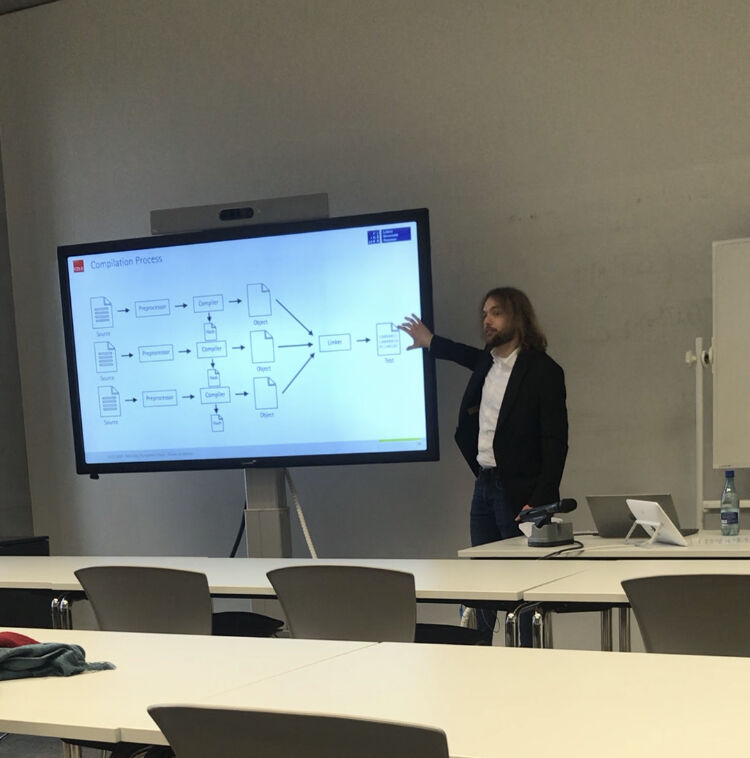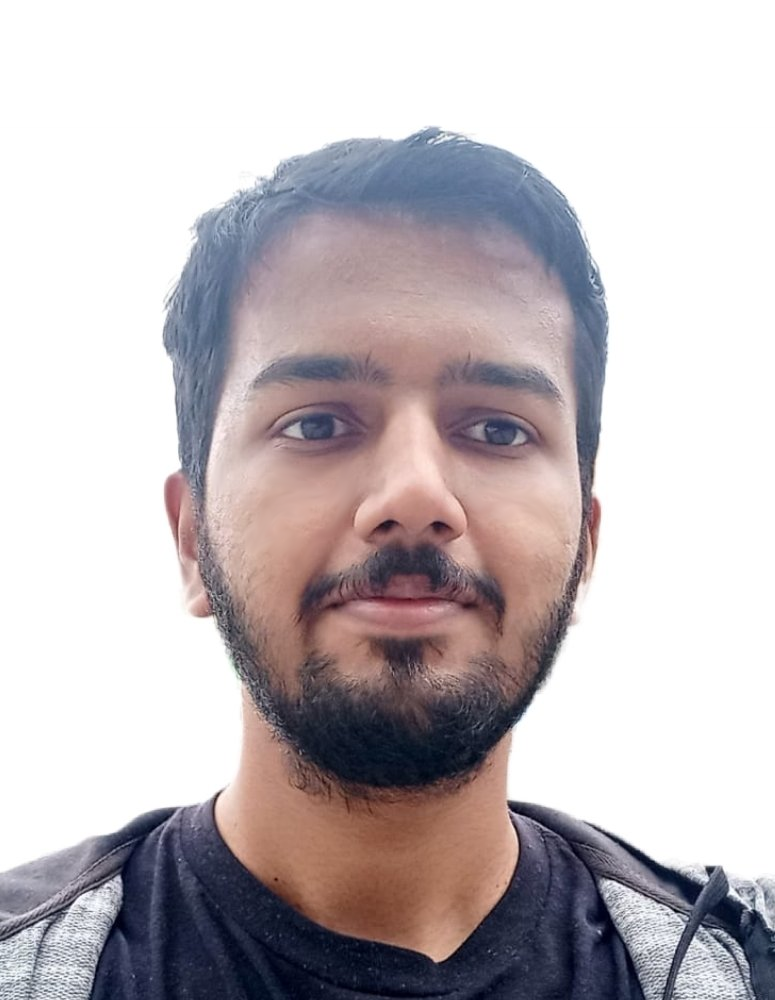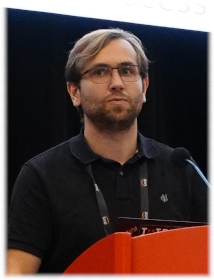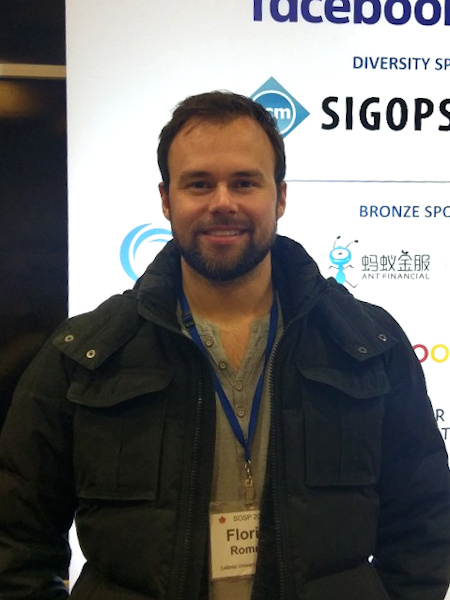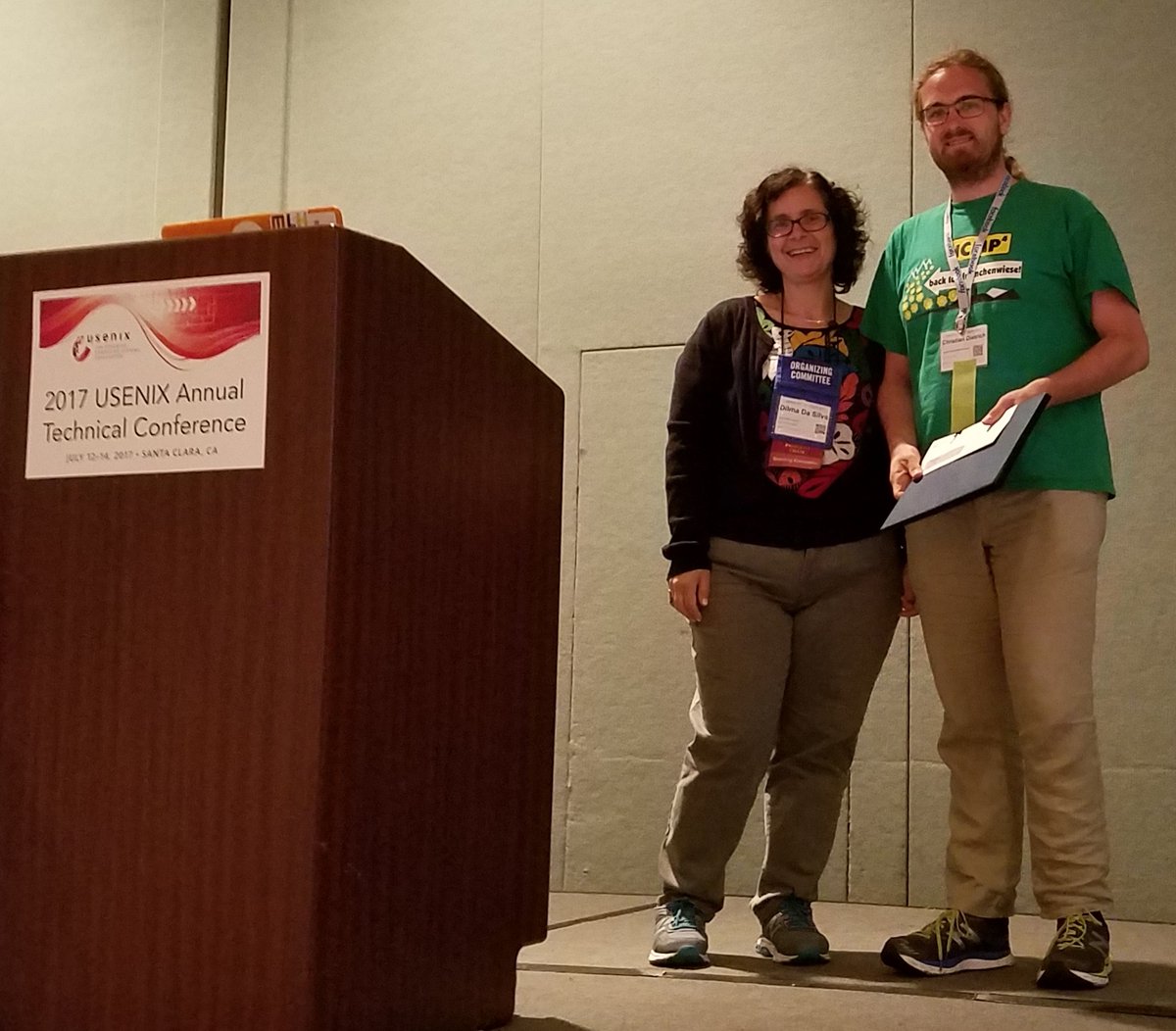CADOS News And Trivia
Tobias Landsberg presents Should I Bother? Fast Patch Filtering for Statically-Configured Software Variants at the 28th ACM International Systems and Software Product Line Conference (SPLC 2024) in Dommeldange, Luxembourg. In the paper, which is part of our CADOS project, we present a new approach to compute which variants of a software product line are affected by a patch. In our evaluation of 200 versions, we show that our tool correctly classifies up to 68 percent of variants (in space and time) as not affected.
Tobias Landsberg was invited to give a presentation on “Reducing Deployment Costs for Compile-Time Variants by Static Analysis” as part of the third seminar of the INTER² Series at University of Luxembourg.
In his presentation, he speaks about his research on static variability, or more precisely about the leveraging of similarities and differences in software product lines in order to save costs, time, and energy, which is taking place as part of the CADOS project.The SRA team got two papers accepted for the 2023 USENIX Annual Technical Conference (ATC '23). Lars Wrenger is going to present our paper LLFree: Scalable and Optionally-Persistent Page-Frame Allocation, which is an extension of his award-winning master's thesis and an important building block for the ParPerOS project. Dominik Töllner is going to present the paper MELF: Multivariant Executables for a Heterogeneous World, which is a great success for the ATLAS and CADOS projects. Congrats to Lars and Dominik, this is a really great achievement for first-year doctoral researchers!
Tobias Landsberg presents our paper TASTING: Reuse Test-case Execution by Global AST Hashing at the 17th International Conference on Sofware Technologies (ICSOFT '22) in Lisbon. In the paper we describe TASTING, an approach for efficiently selecting and reusing regression-test executions across program changes, branches, and variants in continuous integration settings. TASTING can dramatically speed-up test suite executions by recursively composing hashes of all relevant syntactic elements into a semantic fingerprint of the test and its execution environment, so identical test executions can easily be detected and skipped. This is an important building block for variant-aware testing in the CADOS project.
Tobias got the Best Student Paper award for this work!
Nishal Kulkarni, a third-year bachelor student from of VIT-University Vellore, India is visting us for 2 months as with help from a DAAD WISE scholarship. During his time over here, he will be working on data structure support for Multiverse in the CADOS project.
Welcome, Nishal!
- CADOS: Configurability-Aware Development of Operating Systems (DFG: LO 1719/3-2)
- In the CADOS project, we investigate scalable methods and tools to deal with the implementation of variability across all implementation layers of modern system software.
Linux Weekly News (LWN) features our recent work on analyzing kernel e-mail and the PaStA tool presented in our ICSE '19 and OpenSym '16 papers and recent talks by Ralf Ramsauer, Sebastian Duda, and Wolfgang Mauerer at ELCE '19 and LPC '19.
PaStA quantitatively analyses the evolution of patch stacks by mining git repositories, which is an important building block for analyzing patch-level optional features in the CADOS project.
Florian Rommel presents our paper Wait-Free Code Patching of Multi-Threaded Processes at the 10th Workshop on Programming Languages and Operating Systems (PLOS '19) co-located with SOSP in Huntsville, Canada. The paper describes an approach to apply run-time code modification in multi-threaded processes without the need to stop all threads on a global barrier. This is achieved by first preparing a patched clone of the process’s address space and then migrating individual threads at predefined quiescence points while all other threads make uninterrupted progress.
Andreas Ziegler presents our paper Honey, I Shrunk the ELFs: Lightweight Binary Tailoring of Shared Libraries at the International Conference on Embedded Software (EMSOFT '19), in New York. In the paper we describe an approach to automatially reduce the footprint of existing shared libraries by removing unneeded functionality with lightweight binary tailoring. Our approach does not require access to the source code and effectively reduces the amount of code in all shared libraries on a Linux-based system by 63 percent and shrinks their files by 17 percent. The reduction in size is beneficial to cut down costs (e.g., lower storage and memory footprint) and eases code analyses that are necessary for code audits.
Lightweight application-specific tailoring of libraries is an important building block in our attempts towards a fully automatic whole-system tailoring of Linux-based infrastructure software in the CADOS project.
CADOS research students gave two talks at LPC '14: Valentin Rothberg talked about his new tool undertaker-checkpatch, which analyzes patch files. The vampyr tool to configurability-aware compile test (or determine the variability of) source files was presented by Stefan Hengelein.
Linux Weekly News features both CADOS talks and tools in its summary of the LPC highlights!



